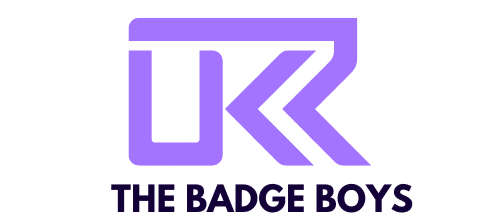Navigating the gig economy: a guide for the modern freelancer
The gig economy represents a significant shift in the way the world works. Gone are the days when a full-time job was the only path to financial stability and career satisfaction. Now, freelancers are carving out a living one project at a time, reveling in the flexibility and diversity of work that gig economy offers. As a freelancer, you are part of a growing community of independent contractors, gig workers, and business owners who are reshaping the landscape of employment.
But with great freedom comes great responsibility. Navigating the gig economy can be as challenging as it is rewarding. Whether it’s finding projects, connecting with potential clients, or managing your time, there’s a lot to keep track of. This article serves as your guide through the dynamic world of freelance work, offering valuable insights and practical advice to help you thrive as a gig economy freelancer.
Avez-vous vu cela : Can we achieve immortality through technology?
Understanding the gig economy
Before diving into the strategies for success, it’s crucial to grasp what the gig economy entails. In essence, it’s a labor market characterized by the prevalence of short-term contracts or freelance work, as opposed to permanent jobs. Freelancers, gig workers, and independent contractors are the backbone of this economy, offering their skills to businesses and clients on a project-by-project basis.
In the gig economy, traditional job security is traded for flexibility and autonomy. For many people, the lure of being their own boss, setting their own hours, and choosing their projects is irresistible. This shift has been enabled by technological advancements, which have made it easier for freelancers to find work and for businesses to find the right talent for short-term needs.
A voir aussi : How to choose high-quality materials for luxury interior design ?
However, understanding the ebb and flow of gig work is essential. The market demand for particular skills can change rapidly, and the competition for gigs can be fierce. As such, successful freelancers must be adept at marketing themselves, networking, and continuously learning to stay ahead.
Finding and securing freelance gigs
In the vast sea of the gig economy, finding and securing gigs can seem daunting. However, with the right approach, you can streamline this process and increase your chances of landing desirable projects. One key destination for freelancers is job boards specifically catered to freelance work. These platforms connect freelancers with clients looking for particular skill sets and can help you find projects that match your expertise.
Another crucial aspect is your presence on social media and other online platforms where potential clients might discover your work. Having a well-curated online portfolio and an active professional profile can significantly enhance your visibility and credibility.
When reaching out to clients or applying for gigs, it’s important to tailor your communication to their needs and highlight how your skills can help their business. Building relationships with clients is just as important as the work itself, as these connections can lead to repeat business and referrals.
Time management for freelancers
As a freelancer, you will quickly realize that time is one of your most valuable assets. Managing it effectively can mean the difference between stress and success. Balancing multiple projects, clients, and personal commitments requires a high degree of organization and a clear understanding of your work capacity.
One of the best ways to keep on top of your time is to establish a routine that includes dedicated work hours, breaks, and time for administrative tasks such as invoicing and client communication. Using productivity tools and apps can also help you stay organized and keep track of deadlines.
Remember, while the flexibility of freelancing is a major perk, maintaining a sense of structure will help ensure that you’re delivering quality work on time and keeping your clients happy.
Building relationships with clients
In the gig economy, the quality of your work will get you hired, but the relationships you build will keep you employed. Fostering strong, professional relationships with your clients is paramount. This involves not just meeting deadlines and producing excellent work but also communicating effectively, being responsive, and showing a genuine interest in their business needs.
One way to cultivate lasting relationships is to provide value beyond the scope of the project. This could mean offering insights into industry trends, suggesting improvements, or being proactive in identifying additional areas where your skills could be of help.
Repeat business and word-of-mouth referrals are powerful drivers of success in the gig economy, and they are often the result of solid, trust-based client relationships.
Leveraging your success stories
As a freelancer, your past projects are a testament to your skills and work ethic. Sharing your success stories can boost your reputation and help you stand out in a crowded market. Whether it’s through case studies on your website, testimonials from clients, or sharing milestones on social media, these stories saves you time in convincing potential clients of your capabilities.
Don’t shy away from asking satisfied clients to provide a brief testimonial or to share your work within their networks. Positive feedback and endorsements can be incredibly persuasive to potential clients browsing your profile or considering you for a gig.
In conclusion, navigating the gig economy requires a blend of skill, strategy, and perseverance. By understanding the dynamics of freelance work, actively seeking out and securing gigs, managing your time wisely, building strong client relationships, and showcasing your successes, you can thrive as a modern freelancer. The gig economy offers a world of opportunity for those willing to adapt and embrace its challenges. With this guide in hand, you’re well-equipped to make the most of the flexibility and potential that freelancing provides.
